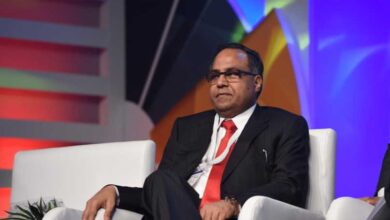Quotation Input for Budget Expectation 2022 by Lavin Mirchandani

In comparison to 2021, India is in a much better state to handle the upcoming wave of Covid-19 cases. A majority of the sectors have recovered and are now back on track for rapid growth. One sector, however, has seen the slowest recovery – the Education sector, with students still unable to attend school physically and unable to get vaccinated, either. We expect the Government to shift a lot of focus to the Education sector in this version of the budget in the following ways:
Higher allocation in overall budget
- Last year, the Government slashed it’s allocation towards Education in the Annual Budget by 6%, amounting to a total allocation of Rs. 93,223 crores, against Rs. 99,311 crores in the year before that. This year, we expect the Government to increase allocation by around 10%, since last year the 6% slash was attributed to funds allocation towards healthcare and other emergency services
Reducing the digital divide
- We expect this year’s Education budget to focus on reducing the digital divide, which has kept a significant number of students – that rely on the country’s public education system and belong to challenged socio-economic backgrounds – from accessing education during the pandemic. We have already seen states like Uttarakhand, Uttar Pradesh and Gujarat provide devices and connectivity to needy students for free, or with heavy subsidy; we expect the Central Government to address this issue to ensure that students can resume classes virtually
Reduced GST rates
- The pandemic’s impact on the education system, particularly the public education system, has increased reliance of all students on supplementary sources of education that are provided by private organisations. Traditionally, such sources have been categorized under ‘Educational Services’ and taxed at 18% under Goods & Services Tax (GST). We expect the Government to revise the GST rate for this category to 5%, thereby easing the financial pressure on the students’ parents, particularly those from lower and middle class families
Partner with private companies
- Given the utility of education-technology (EdTech) tools during the pandemic, we expect the Government to announce a host of schemes this year to make EdTech tools accessible to students across the country. These schemes could pertain to Public Private Partnerships (PPP), subsidies or Direct Bank Transfers (DBT) to enable citizens to procure devices, connectivity and even subscription to educational services that’ll enable them to garner knowledge amidst closure of their educational institutions
Focus on vernacular languages
- Since a significant number of students relying on the public education system learn in vernacular languages – which are largely ignored by private EdTech players – it is quite likely that the Education budget will observe the Government mobilising resources towards creation or curation of regional-language educational content that’ll be aimed at such students. Efforts in this direction have already been initiated over the last few years, however, they are likely to receive a shot in the arm this year
I believe that these key features, if addressed in the upcoming budget, will help India’s education system get back on track to recovery and help students continue their education even if they are unable to visit their schools till the students get fully vaccinated.
Author Bio:
Mr. Lavin Mirchandani is the Co-founder of ConnectEd Technologies, which is an edtech social enterprise that specializes in creating tailor-made technologies and deploying large-scale developmental programs that make quality education accessible to government schools and the children studying therein. For the company, he leads Content Development and Finance, which are two critical functions that lead any edtech enterprise towards a sustainable business model.In a situation where the edtech industry in India is plagued by companies that have raised immense capital to achieve scale, but remain largely unviable, Mr. Lavin Mirchandani has been able to leverage his past experience in the finance industry to build a commercially viable business model for the company from the first year of business itself. Proprietary content development processes designed by him have enabled us to have the fastest and most cost-effective content creation capabilities in the entire edtech industry, which has been instrumental in bringing viability and scalability to ConnectEd Technologies. A backbone to the organization, Mr. Mirchandani has continually strengthened the company’s strategies to meet the constantly evolving demands of vernacular State Board government schools and their students.














